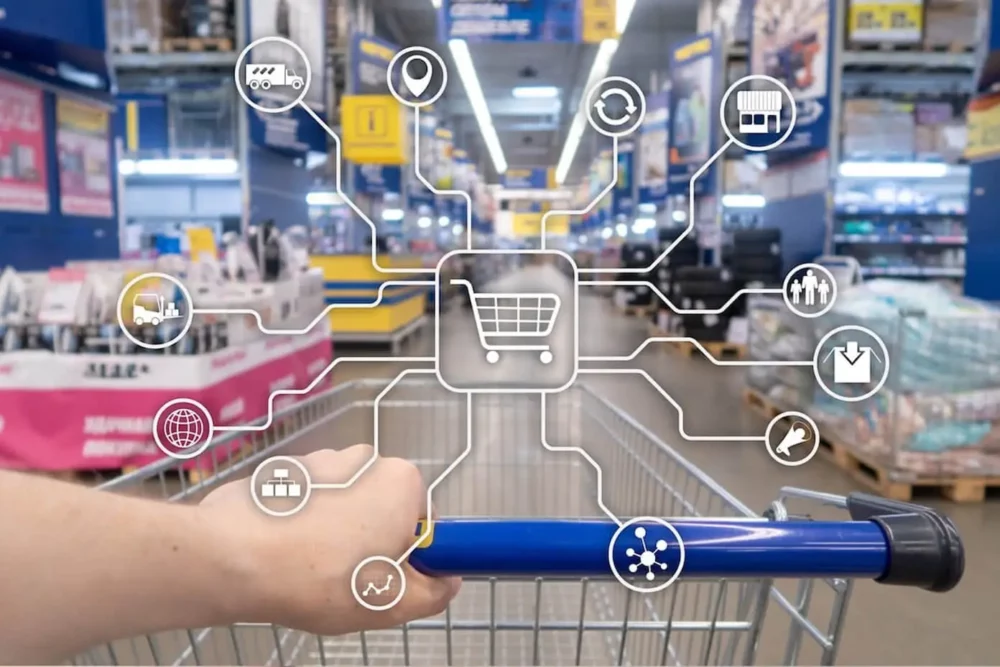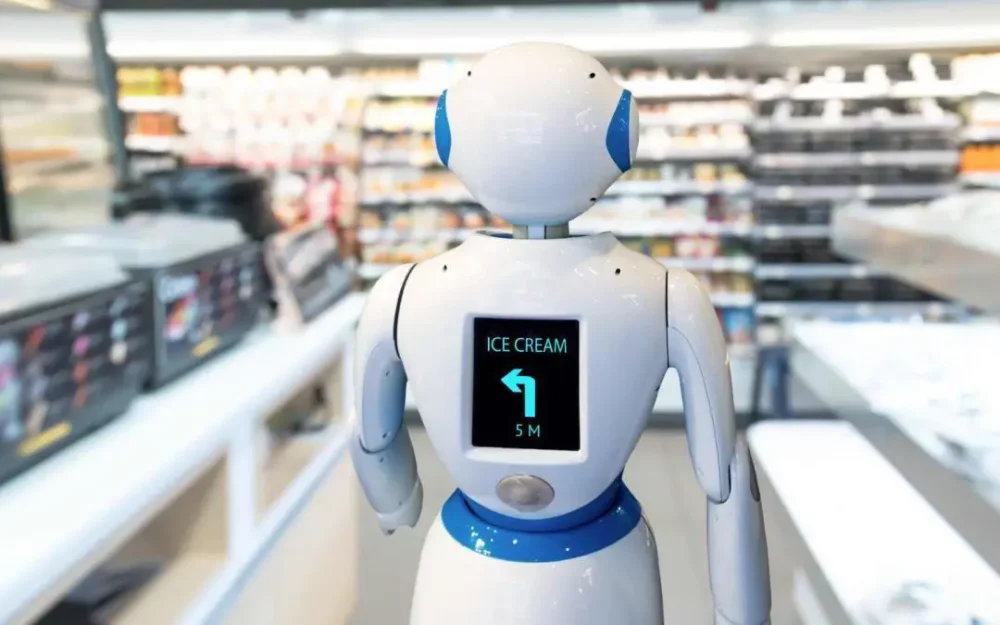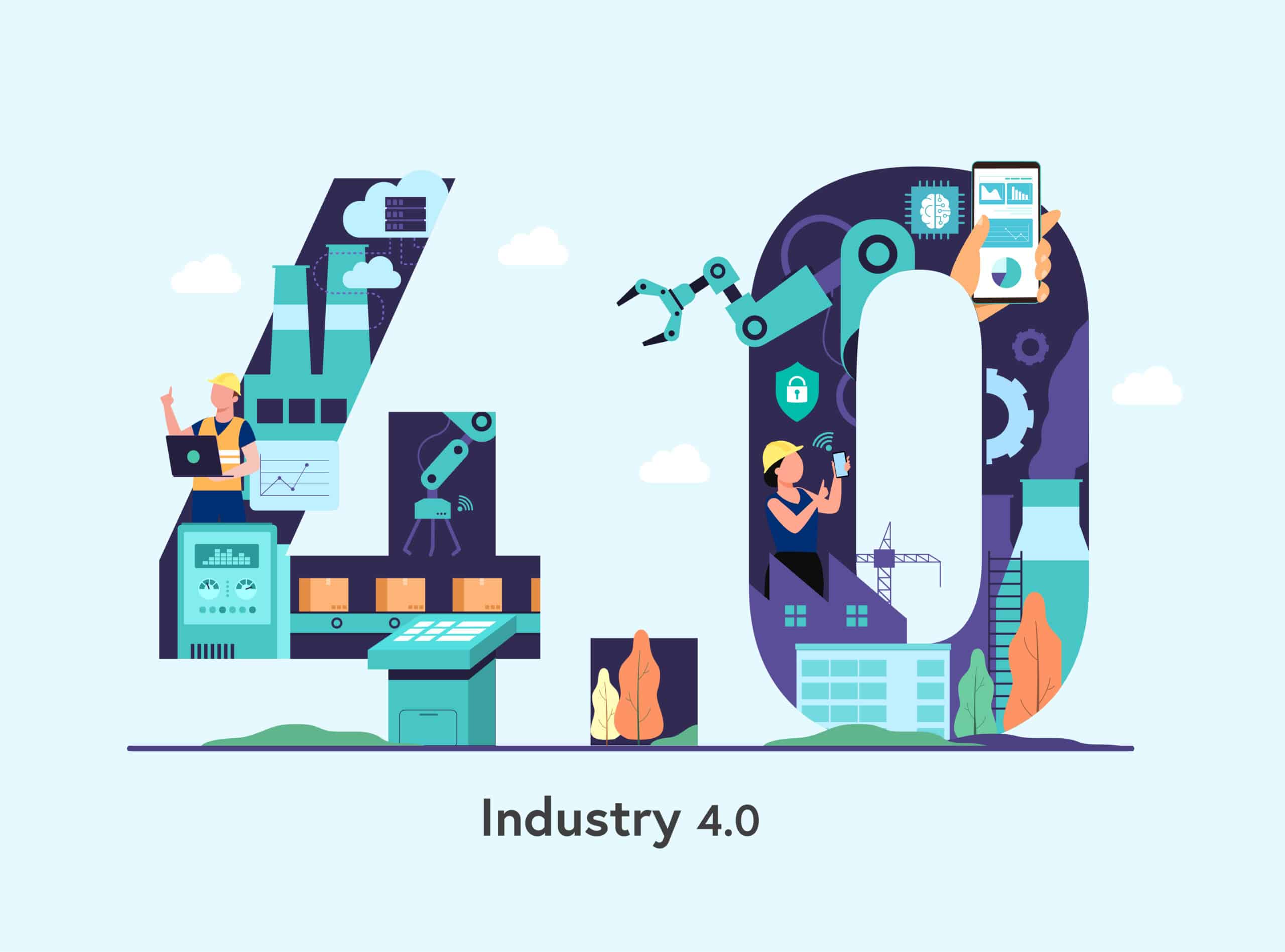AI (Artificial Intelligence) has emerged as a game-changer in the retail industry, transforming the way businesses interact with customers and manage their operations. In this article, we will explore the potential of AI in revolutionizing the retail sector, from enhancing customer experience to streamlining supply chain management. So, what exactly is AI and why is it significant in the retail sector?

Definition of AI and its Significance in the Retail Sector
AI refers to the simulation of human intelligence in machines that are programmed to think and learn like humans. It encompasses a range of technologies, including machine learning, natural language processing, computer vision, and robotics. In the context of the retail industry, AI holds immense potential to drive growth, improve efficiency, and deliver personalized experiences to customers.
The significance of AI in the retail sector lies in its ability to process and analyze vast amounts of data, enabling retailers to gain valuable insights into customer behavior, preferences, and trends. With this information, businesses can make data-driven decisions, tailor their offerings to individual customers, and deliver personalized experiences that resonate with their target audience.

Brief Overview of the Growth and Adoption of AI in Retail
Over the past decade, the retail industry has witnessed a rapid adoption of AI-driven technologies. According to a report by Grand View Research, the global AI in the retail market size is expected to reach $23.6 billion by 2027, exhibiting a compound annual growth rate (CAGR) of 38.3%. This growth can be attributed to several factors, including the increasing demand for personalized experiences, the need for efficient operations, and the rising competition in the retail landscape.
Retailers are leveraging AI in various areas, such as customer service, inventory management, marketing, and security, to gain a competitive edge. AI-powered chatbots are being used to provide instant customer support, virtual shopping assistants are offering personalized product recommendations, and automated inventory management systems are optimizing stock levels. These AI applications not only enhance the customer experience but also improve operational efficiency, reduce costs, and drive revenue growth.
In the following sections, we will delve deeper into the benefits of ai in the retail industry, explore its applications, examine successful case studies, discuss challenges and limitations, and shed light on future trends. Join me on this exciting journey as we uncover the transformative power of AI in revolutionizing the retail industry.
Benefits of AI in the Retail Industry
Artificial Intelligence (AI) is reshaping the retail industry, offering a multitude of benefits to both retailers and customers. Let’s explore the key advantages that AI brings to the table:
Enhanced Customer Experience through Personalized Recommendations
AI-powered algorithms analyze customer data, including purchase history, browsing behavior, and demographics, to generate personalized product recommendations. By understanding individual preferences and needs, retailers can deliver tailored suggestions, increasing the likelihood of customer satisfaction and repeat purchases. This level of personalization not only enhances the overall shopping experience but also boosts customer loyalty and engagement.
Improved Inventory Management and Demand Forecasting
Accurate inventory management and demand forecasting are crucial for retail success. AI enables retailers to optimize inventory levels by analyzing historical sales data, market trends, and external factors. With AI-powered systems, retailers can predict demand patterns, identify popular products, and adjust their inventory accordingly. This reduces the risk of stockouts and overstocking, leading to improved operational efficiency, minimized costs, and increased profitability.
Efficient and Targeted Marketing Campaigns
AI empowers retailers to create highly targeted and effective marketing campaigns. By analyzing customer data and behavior, AI algorithms can identify specific customer segments, allowing retailers to craft personalized marketing messages and offers. This level of precision maximizes the chances of reaching the right audience with the right message at the right time. AI also enables dynamic pricing, where retailers can adjust prices in real-time based on customer demand, competitor pricing, and market conditions.
Streamlined Supply Chain and Logistics Operations
AI-driven supply chain and logistics solutions optimize processes, reduce inefficiencies, and enhance overall operational performance. AI algorithms can analyze data from multiple sources, including suppliers, transportation, and customer demand, to optimize routes, reduce delivery times, and minimize costs. By streamlining these operations, retailers can ensure timely product delivery, reduce waste, and enhance customer satisfaction.
In the next section, we will explore specific applications of AI in the retail industry, highlighting how these technologies are transforming the way retailers interact with customers and manage their operations.
AI Applications in Retail
AI-Powered Chatbots for Customer Service and Support
One of the key applications of AI in the retail industry is the use of AI-powered chatbots for customer service and support. These virtual assistants are programmed to understand and respond to customer queries, providing real-time assistance and support. By leveraging natural language processing and machine learning algorithms, AI chatbots can deliver personalized and accurate responses, enhancing the overall customer experience. Whether it’s answering product-related questions, providing order updates, or resolving complaints, AI chatbots are available 24/7, ensuring prompt and efficient customer service.

Virtual Shopping Assistants and Personalized Product Recommendations
AI has revolutionized the way customers discover and purchase products. Virtual shopping assistants, powered by AI, can guide customers through their shopping journey, helping them find the right products based on their preferences, needs, and previous purchase history. These assistants use machine learning algorithms to analyze vast amounts of data, including customer behavior and product information, to deliver tailored recommendations. By personalizing the shopping experience, retailers can increase customer satisfaction, drive sales, and foster long-term loyalty.
Automated Inventory Management Systems
Managing inventory is a critical aspect of retail operations, and AI has simplified and optimized this process. Automated inventory management systems powered by AI can accurately forecast demand, analyze historical sales data, and monitor stock levels in real-time. By automating these tasks, retailers can ensure optimal stock levels, avoid stockouts or overstocking, and reduce carrying costs. AI-driven inventory management systems also enable retailers to streamline their supply chain, improve order fulfillment, and enhance overall operational efficiency.
Facial Recognition Technology for Enhanced Security and Personalized Shopping Experiences
Facial recognition technology has gained prominence in the retail industry, offering both security enhancements and personalized shopping experiences. Retailers are using AI-powered facial recognition systems to identify and authenticate customers, replacing traditional methods like ID cards or passwords. This technology not only enhances security by preventing theft and fraud but also enables personalized experiences. By recognizing customers, retailers can deliver tailored recommendations, personalized offers, and targeted marketing campaigns, creating a seamless and customized shopping journey.
In the next section, we will explore successful case studies of AI implementation in the retail industry, showcasing real-world examples of how AI has transformed the retail landscape. Stay tuned as we delve into the innovative applications of AI that have revolutionized the way retailers engage with customers and optimize their operations.
Case Studies: Successful Implementation of AI in Retail
Example 1: XYZ Retailer’s Use of AI-Powered Chatbots to Enhance Customer Service
XYZ Retailer, a leading player in the retail industry, has successfully implemented AI-powered chatbots to revolutionize their customer service. By leveraging natural language processing and machine learning algorithms, these chatbots provide instant and personalized assistance to customers, enhancing their overall shopping experience.
The AI-powered chatbots at XYZ Retailer are capable of understanding and responding to customer queries, offering product recommendations, and addressing concerns promptly. These virtual assistants are available 24/7, ensuring that customers receive timely support, regardless of the time or day. By automating customer service processes, XYZ Retailer has not only reduced the workload on their support staff but also improved response times and customer satisfaction.
Example 2: ABC Fashion Store’s Implementation of AI for Personalized Product Recommendations
ABC Fashion Store has embraced AI technology to deliver personalized product recommendations to its customers. By analyzing customer data, including purchase history, browsing behavior, and preferences, ABC Fashion Store’s AI algorithms generate tailored recommendations that align with each individual’s unique style and preferences.
Through AI-powered recommendation systems, ABC Fashion Store has been able to enhance the shopping experience by showcasing relevant products that customers are more likely to be interested in. This personalization not only increases customer engagement but also boosts sales and customer loyalty. By leveraging AI to understand customer preferences and deliver personalized recommendations, ABC Fashion Store has witnessed a significant increase in conversion rates and customer satisfaction.
Example 3: DEF Supermarket’s Adoption of AI-Driven Inventory Management System
DEF Supermarket, a large-scale retail chain, has implemented an AI-driven inventory management system to optimize stock levels and streamline operations. By using machine learning algorithms, the system analyzes historical sales data, current trends, and external factors to forecast demand accurately.
This AI-powered system at DEF Supermarket has revolutionized inventory management by automating replenishment processes, reducing overstocking and out-of-stock situations. By optimizing inventory levels, DEF Supermarket has minimized holding costs, improved cash flow, and ensured that popular products are always available for customers. The AI-driven inventory management system has not only improved operational efficiency but also increased profitability for DEF Supermarket.
These case studies demonstrate the successful implementation of AI in the retail industry, showcasing its potential to enhance customer service, deliver personalized experiences, and streamline operations. By leveraging AI technologies, retailers can stay ahead of the competition and meet the evolving needs of their customers.
Challenges and Limitations of AI in Retail
While AI holds immense potential in transforming the retail industry, it also comes with its fair share of challenges and limitations. It is important to address these hurdles to ensure the responsible and ethical use of AI technologies. Let’s explore some of the key challenges that retailers may encounter when implementing AI solutions.
Data Privacy Concerns and Ethical Considerations
One of the primary concerns surrounding AI in the retail industry is data privacy. As AI relies heavily on collecting and analyzing vast amounts of customer data, there is a need to ensure proper data protection and privacy measures. Retailers must comply with data protection regulations and establish robust security protocols to safeguard customer information. Additionally, ethical considerations arise when using AI-powered technologies, such as facial recognition, as they raise questions about consent, surveillance, and potential biases.
Initial Investment and Integration Challenges
Implementing AI solutions in the retail industry requires a significant initial investment. Retailers need to acquire the necessary hardware, software, and expertise to leverage AI effectively. Furthermore, integrating AI technologies with existing systems and processes can be complex and time-consuming. It often requires seamless integration with various departments, such as marketing, supply chain, and customer service. Overcoming these integration challenges requires careful planning, collaboration, and a well-defined implementation strategy.
Potential Job Displacement and Workforce Transformation
The adoption of AI in the retail industry may lead to concerns about job displacement and workforce transformation. As automation and AI-powered technologies become more prevalent, certain tasks and roles traditionally performed by humans may become automated. This can cause anxiety among employees, who may fear losing their jobs to machines. However, it is important to note that while AI may replace certain tasks, it can also create new job opportunities and lead to the transformation of existing roles. Retailers must focus on reskilling and upskilling their workforce to adapt to the changing landscape and ensure a smooth transition.
By proactively addressing these challenges, retailers can maximize the benefits of AI while mitigating potential risks. It is crucial to prioritize data privacy, invest in proper integration and infrastructure, and support employees in their professional development. By doing so, retailers can navigate the challenges of AI adoption and embrace the transformative power of these technologies in the retail industry.
Conclusion: Embracing the AI Revolution in the Retail Industry
As we conclude our exploration of AI in the retail industry, it is evident that this transformative technology is revolutionizing the way businesses operate and engage with customers. The adoption of AI in the retail sector is no longer a luxury but a necessity to stay competitive in today’s dynamic market landscape.
With AI, retailers can harness the power of data to deliver personalized experiences, improve inventory management, and optimize operations. By leveraging AI-powered chatbots, virtual shopping assistants, and automated inventory systems, retailers can enhance customer satisfaction, increase sales, and streamline their supply chain processes.
However, as with any technological advancement, challenges and limitations exist. Data privacy concerns and ethical considerations need to be addressed to ensure the responsible use of AAdditionally, the initial investment and integration challenges may pose obstacles for some retailers. Nevertheless, the potential benefits far outweigh the challenges, making it imperative for retailers to embrace AI and stay ahead of the curve.
Looking ahead, the future of AI in the retail industry holds immense promise. Advancements in AI technology, such as the integration of machine learning and computer vision, will unlock new possibilities for retailers to further personalize customer experiences and optimize their operations. The retail landscape will continue to evolve, and those who embrace AI will be at the forefront of innovation and profitability.
At industry.vdict.pro, we are committed to keeping you informed about the latest advancements and trends in the retail industry. Stay tuned for more insightful articles on AI, technology, and their impact on various sectors. Embrace the AI revolution and unlock the full potential of your retail business.

Remember, the future of retail is powered by AI – join the revolution today!





